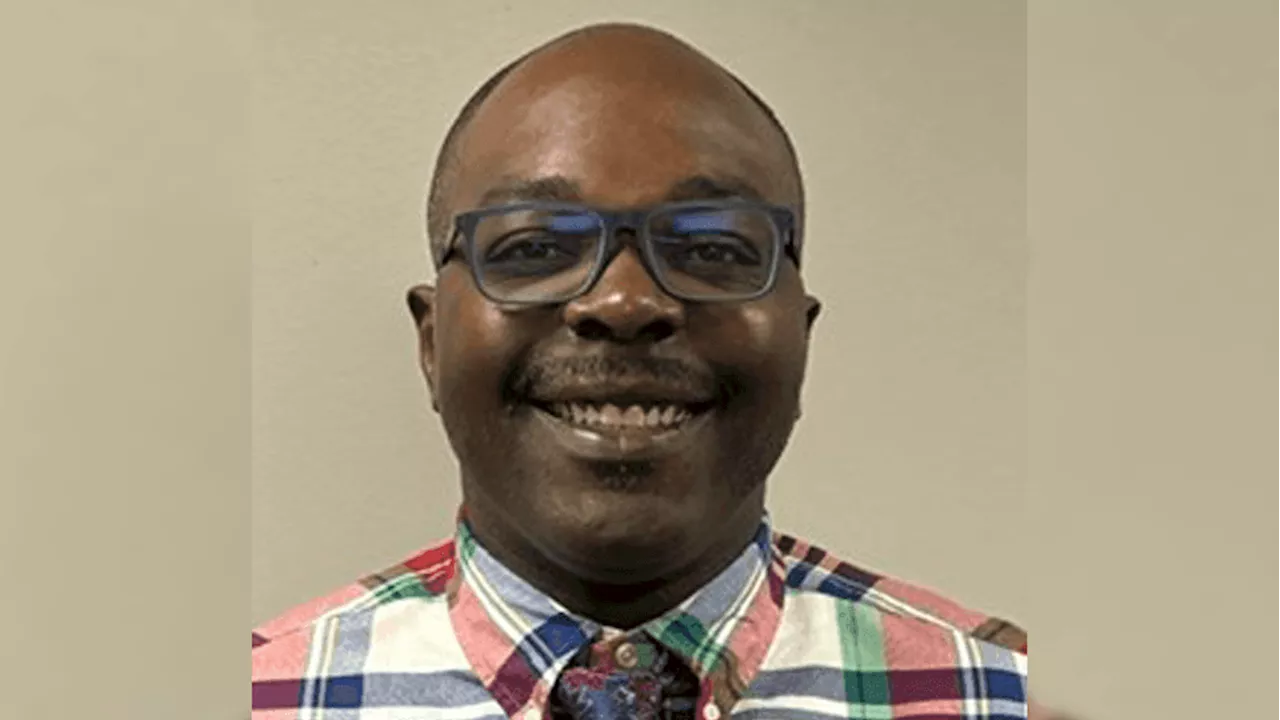The U.S. administration's ambiguous waiver on humanitarian assistance programs raises serious concerns for PEPFAR, the global HIV/AIDS program credited with saving 25 million lives. The potential interruption in funding could lead to a devastating halt in antiretroviral medication distribution, jeopardizing the health and lives of millions living with HIV.
A woman in Nairobi, Kenya, who is HIV positive takes antiretroviral pills, which suppress the virus. The U.S. program PEPFAR is instrumental in providing these life-saving medications around the world. On Tuesday — the U.S.-led HIV/AIDS program created in 2003 and credited with saving 25 million lives globally — the Trump administration issued an ambiguous waiver for programs that provide lifesaving humanitarian assistance earlier this week.
It wasn't immediately clear whether PEPFAR qualifies for the waiver in full or in part. On Wednesday, health minister Dr. Aaron Motsoaledi said, 'So far, we haven't received any letter from the American government. Tried to contact the embassy of the US. We couldn't get them.' Organizations that provide HIV treatment, including crucial life-saving drugs that prevent HIV from replicating, have been significantly impacted. Their website now states that they're 'regret to announce that, due to an immediate 'stop-work order' issued by our funder, we cannot provide any services until further notice.' Other groups have sounded the alarm as well. 'We are seeing interruptions in medication supply, clinics are scaling back services and community health workers have literally been losing their livelihoods,' says Ling Sheperd with the Joint Clinical Research Centre, a clinical HIV researcher. Ling Sheperd says, 'I for one have received many calls from my patients asking what their fate is.' Motsoaledi dreads what stopping the distribution of antiretroviral drugs, or ARVs, would mean. 'Nobody must stop taking ARVs because that would be devastating,' he said. 'It will be completely dangerous. When you are on ARVs and you stop, there will be serious trouble.' HIV was once a death sentence. But antiretroviral medications, taken as a single tablet each day, now allow people to live reasonably healthy lives. 'The drugs work by inhibiting the virus's ability to replicate,' says Dr. David Beyrer, the director of the Duke Global Health Institute. 'but it controls the amount of virus in your body so that you don't get very sick.' She says the drugs kill the virus at different points of its life cycle and keep it from making copies of itself. They're so effective that HIV transmission has plummeted between sexual partners and from mothers to children. By providing these drugs to clinics around the world, PEPFAR has helped lower global HIV rates and save millions of lives. When Cu-Uvin started out as a medical doctor, all her HIV-positive patients were dying in their 20s and 30s. Today, her oldest patient is 90. (The woman discovered she had HIV in her late 60's and likely contracted it earlier.) Because of these drugs, 'any person who has HIV has been given a life,' says Cu-Uvin. 'Stopping antiretroviral therapy means death, means sickness.' Once someone stops taking antiretrovirals, the levels of these protective drugs begin to drop in their body. That's when HIV comes out from hiding, says Dr. David Beyrer, the director of the Duke Global Health Institute. 'We don't know where all of them are. We know some of them are in lymph nodes and in other tissues. Some may be in the brain. But either way, the virus will come back.' This means that within days or weeks, the patient will come down with what feels like a dreadful flu. 'You're achy, you have night sweats, you have fever,' says Beyrer. 'And some people may feel like they're acquiring HIV all over again with rash and high fever, headaches, nausea.' The disease will then progress. The speed of that progression depends on a variety of factors, but becoming immunocompromised — in which the immune system is weakened and no longer able to fight off infections — is pretty much inevitable. 'Eventually, all those people will develop clinical AIDS and the very serious complications like opportunistic infections that a healthy immune system protects you from,' Beyrer says. Those infections include everything from shingles to fungal and parasitic infections to — especially in Africa and Asia — tuberculosis. Any of these can kill someone without a functioning immune system. There's another problem with stopping antiretroviral treatment. The period when drug levels in the body are declining and viral levels are growing is when the virus is most likely to become resistant. 'You are selecting for resistant virus because you don't have enough drug in the body to fully suppress replication,' explains Beyrer. 'And if you develop resistance to one of these antivirals, you generally are resistant to the whole class.' That forces someone to move onto a second or third line regimen of drugs that are pricier and harder to get. Plus, 'if you do have a resistant virus, you can transmit it,' says Beyrer. 'Without antiretroviral therapy,' says Cu-Uvin, 'the amount of virus in your body will bounce back immediately. The virus comes back in revenge.
PEPFAR HIV Treatment Antiretroviral Drugs Humanitarian Aid Global Health Trump Administration HIV/AIDS Public Health
United States Latest News, United States Headlines
Similar News:You can also read news stories similar to this one that we have collected from other news sources.
 Councilman berates police officer after stop for alleged stop sign violationA New Jersey councilman was filmed berating a police officer after being pulled over for allegedly ignoring a stop sign. Paulsboro Councilman Theodore Holloway argued that officers should treat elected officials differently, telling them to simply warn them about the violation instead of conducting a full traffic stop.
Councilman berates police officer after stop for alleged stop sign violationA New Jersey councilman was filmed berating a police officer after being pulled over for allegedly ignoring a stop sign. Paulsboro Councilman Theodore Holloway argued that officers should treat elected officials differently, telling them to simply warn them about the violation instead of conducting a full traffic stop.
Read more »
 New Jersey Councilman Berates Police Officer After Stop Sign StopA New Jersey councilman was caught on video berating a police officer after being pulled over for allegedly ignoring a stop sign. Councilman Theodore Holloway argued that elected officials should be treated differently by law enforcement and accused the officer of wasting taxpayer money.
New Jersey Councilman Berates Police Officer After Stop Sign StopA New Jersey councilman was caught on video berating a police officer after being pulled over for allegedly ignoring a stop sign. Councilman Theodore Holloway argued that elected officials should be treated differently by law enforcement and accused the officer of wasting taxpayer money.
Read more »
 California neighbors work to stop flames spreading between homesThis is additional taxonomy that helps us with analytics
California neighbors work to stop flames spreading between homesThis is additional taxonomy that helps us with analytics
Read more »
 Stop Relying on Others for Validation at WorkWho doesn’t appreciate the acknowledgment of their efforts and wins, or like to impress others occasionally? It’s equally important to cultivate internal validation: a deeper sense of self-worth that is free from the wavering opinions of others and the momentary dopamine hit of a gold star.
Stop Relying on Others for Validation at WorkWho doesn’t appreciate the acknowledgment of their efforts and wins, or like to impress others occasionally? It’s equally important to cultivate internal validation: a deeper sense of self-worth that is free from the wavering opinions of others and the momentary dopamine hit of a gold star.
Read more »
 Stop Relying on Others for Validation at WorkHow to cultivate a deeper sense of self-worth.
Stop Relying on Others for Validation at WorkHow to cultivate a deeper sense of self-worth.
Read more »
 Stop Relying on Others for Validation at WorkHow to cultivate a deeper sense of self-worth.
Stop Relying on Others for Validation at WorkHow to cultivate a deeper sense of self-worth.
Read more »
